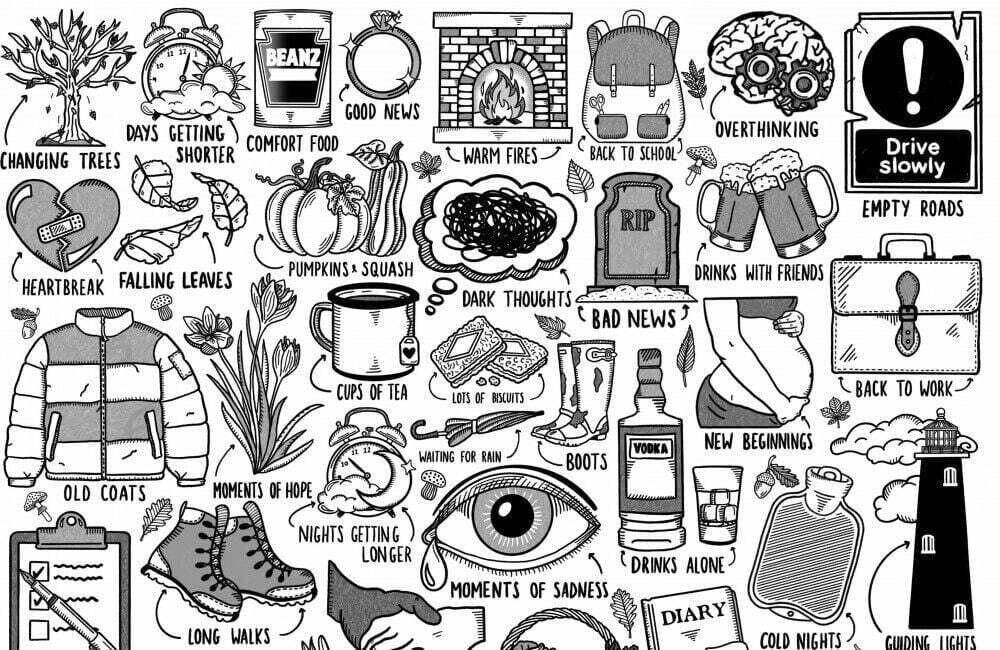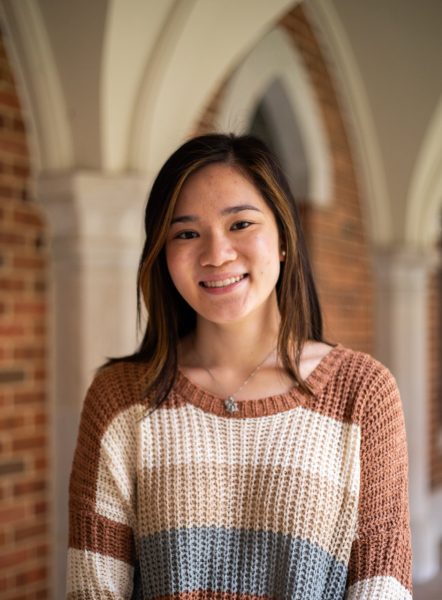Ed Sheeran’s latest endeavors have been a simultaneous ending of one chapter of his career and the beginning of another one. In the midst of his +–×÷= Tour, the culmination of his work for the past 12 years, he released an album with a new theme: “Autumn Variations.”
“Autumn Variations” was inspired by composer Edward Elgar’s “Enigma Variations,” published in 1899. Each variation on the main theme was dedicated to one of Elgar’s friends. Like “Enigma Variations,” Sheeran’s “Autumn Variations” consists of 14 tracks, each of which focuses on one of Sheeran’s personal relationships. According to an Instagram post on Aug. 24, Sheeran wanted to capture the sentiment of midlife changes that are so often associated with the season of autumn.
“Last autumn, I found that my friends and I were going through so many life changes,” Sheeran stated. “After the heat of the summer, everything either calmed, settled, fell apart, came to a head or exploded… When I learned about my friend’s different situations, I wrote songs, some from their perspectives, some from mine, to capture how they and I viewed the world at that time. There were highs of falling in love and new friendships among lows of heartbreak, depression, loneliness and confusion.”
Sheeran immediately dives into those highs of falling in love with the album’s first track, “Magical.” Some songs about love at first sight are electric, thrilling and rousing — musical representations of the adrenaline rush that inevitably comes along with instant attraction. In contrast, “Magical” is soothing and contemplative yet exhilarating in its own way. It vividly describes the intimacy of human romance, the feeling of time standing still when your eyes meet those of another.
The second track, “England,” speaks of a “brand new start” and a blue “so bright you’ll need shades for your eyes.” The following track is not quite as optimistic. “Amazing” betrays its upbeat, cheerful melody with lyrics about sickness and the inability to lift one’s own mood that entirely take over in the next song. In “Plastic Bag,” Sheeran writes about switching completely from a glass-half-full mentality to a glass-half-empty one, describing struggles with insomnia, grief over the death of a friend and the use of alcohol on the weekends to drown out the pain.
“It’s about being at your lowest and thinking that obliterating yourself on a Saturday night is gonna solve all your problems,” Sheeran stated in another Instagram post on Sept. 26.
After another melancholic tune, “Blue,” Sheeran talks of recovering one’s own joy in my personal favorite track, “American Town.” The song is most likely a reflection on his adventures with his wife, Cherry Seaborn, a fellow United Kingdom native. Sheeran sings about his “English girl in an American town” with whom he watches films and chats until dawn.
The next track, “That’s On Me,” is a song that anyone can relate to, regardless of how old they are or what stage of life they are in. In the chorus, Sheeran sings, “This is not the end of our lives / This is just a bump in the ride / And I know that it will be alright.” Between choruses, though, listeners catch a glimpse of the fearful thoughts that swirl around in the narrator’s head as he worries that his life is flying by before his eyes, skipping the accomplishments and dreams he hoped to one day achieve. Whether you’ve just entered your second decade of life like many of my peers or you’re a middle-aged adult watching your children grow up, you can agree that we all feel as though our minor setbacks are the end of the world at times. Later in the album, “Page” and “Spring” share similar themes.
In classic Ed Sheeran fashion, the album has its fair share of heartbreak songs. “Punchline” and “When Will I Be Alright” are about parting ways with a lover. While the former expresses denial about the breakup, the latter delves deeper into the narrator’s own destructive thoughts and habits. Sheeran talks of losing hope, feeling empty and nearing the end.
“The Day I Was Born” describes a more specific experience: spending your birthday alone. Without the company of friends or lover, the writer resigns himself to some drinks at the bar, using his liquid courage to find someone new to talk to in order to fill the void.
The album’s final track, “Head > Heels,” is a quiet song with piano accompaniment and a soft but rapid beat. Sheeran discusses the feeling of being “alone together” with a partner when the world seems to revolve around only the two of you. Yet this seemingly merry picture is tainted by a wistful melody. It is up to the listener to decide whether this is a happy ending to the album’s stories or simply a looking back on old memories.
For me, both of these feelings always accompany the advent of autumn. The prospects of pumpkin carving, fall flavors in grocery stores and haunted houses are things to look forward to. As the leaves change colors and the cooler weather sets in, however, I always find myself nostalgic for the high school experiences I shared with my friends growing up in the Northeast — football games, the homecoming dance and tennis matches. As much as I love admiring the beauty of fall in Nashville, being 800 miles away from home only adds to the nostalgia at times. Ed Sheeran’s album perfectly encapsulates the bittersweet feeling of reminiscence juxtaposed with anticipation that the changing of the seasons so often evokes. According to an Instagram post the day the album was released, this is exactly what Sheeran wanted his album to do.
“I just want you guys to have a soundtrack for autumn/fall that feels like a warm hug,” Sheeran stated. “I hope you love it.”
“Love” is an understatement.





